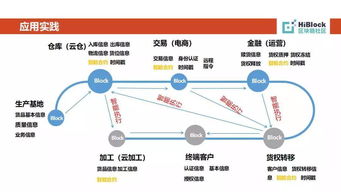Title: Leveraging Data in Blockchain Business Applications
In the realm of blockchain technology, leveraging data efficiently is paramount for optimizing business operations, enhancing security, and driving innovation. This article delves into how data can be effectively utilized in various aspects of blockchain business applications.
1. Smart Contracts and Data Automation
Smart contracts, the selfexecuting contracts with the terms of the agreement directly written into code, revolutionize traditional business processes by automating actions upon predefined conditions. Data plays a pivotal role in smart contracts by facilitating:
Immutable Recordkeeping
: Blockchain's decentralized nature ensures that data recorded on the blockchain is immutable and tamperproof, providing a secure and transparent record of transactions.
Decentralized Oracles
: Oracles act as bridges between the blockchain and external data sources. Leveraging oracles, smart contracts can autonomously execute actions based on realworld data, such as stock prices or weather conditions.2. Supply Chain Management and Traceability
Blockchain technology offers unparalleled transparency and traceability in supply chain management, ensuring the authenticity and provenance of products. Data enables:
EndtoEnd Traceability
: Each step of the supply chain can be recorded on the blockchain, allowing stakeholders to trace the journey of a product from its origin to the end consumer.
Quality Control and Compliance
: IoT devices and sensors can collect realtime data on factors like temperature and humidity during transportation, ensuring compliance with quality standards and regulations.3. Decentralized Finance (DeFi) and Datadriven Decision Making
DeFi platforms leverage blockchain technology to provide financial services without intermediaries, revolutionizing traditional finance. Datadriven decision making in DeFi involves:
Onchain Analytics
: Analyzing onchain data provides insights into market trends, liquidity, and user behavior, empowering investors to make informed decisions.
Risk Management
: Utilizing historical data and smart contract protocols, DeFi platforms can assess and mitigate risks associated with lending, borrowing, and trading activities.4. Identity Management and Data Privacy
Blockchainbased identity management solutions offer individuals greater control over their personal data while ensuring security and privacy. Data management in identity solutions involves:
Selfsovereign Identity
: Individuals can store their identity credentials on the blockchain in a secure and decentralized manner, granting them full control over who can access their data.
Zeroknowledge Proofs
: Zeroknowledge proofs allow users to prove the authenticity of their identity or other data without revealing the underlying information, preserving privacy.5. Data Monetization and Tokenization

Blockchain enables the tokenization of assets, including data itself, unlocking new opportunities for data monetization. Key aspects include:
Data Marketplaces
: Blockchainbased data marketplaces allow individuals and organizations to securely buy, sell, and trade data, fostering a decentralized data economy.
Tokenized Data Ownership
: Tokenization enables the fractional ownership of data, where individuals are incentivized to contribute and maintain data integrity through token rewards.In conclusion, data serves as the lifeblood of blockchain business applications, empowering organizations to streamline processes, enhance transparency, and unlock new revenue streams. By harnessing the power of data in conjunction with blockchain technology, businesses can pioneer innovative solutions across various industries.
标签: 区块链的商业模式 区块链商业模式以什么控制为核心 区块链在商业保险领域的应用原理 区块链商业应用算法







